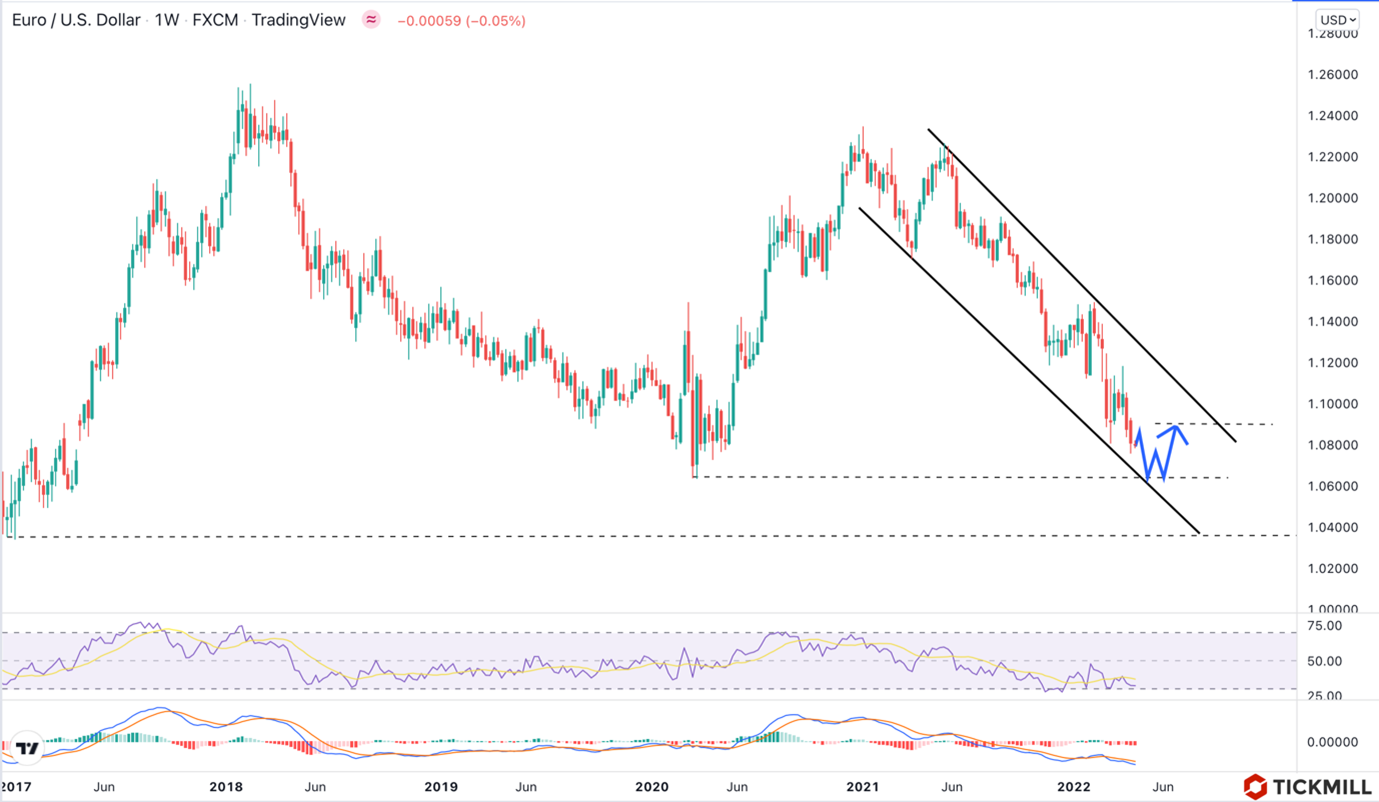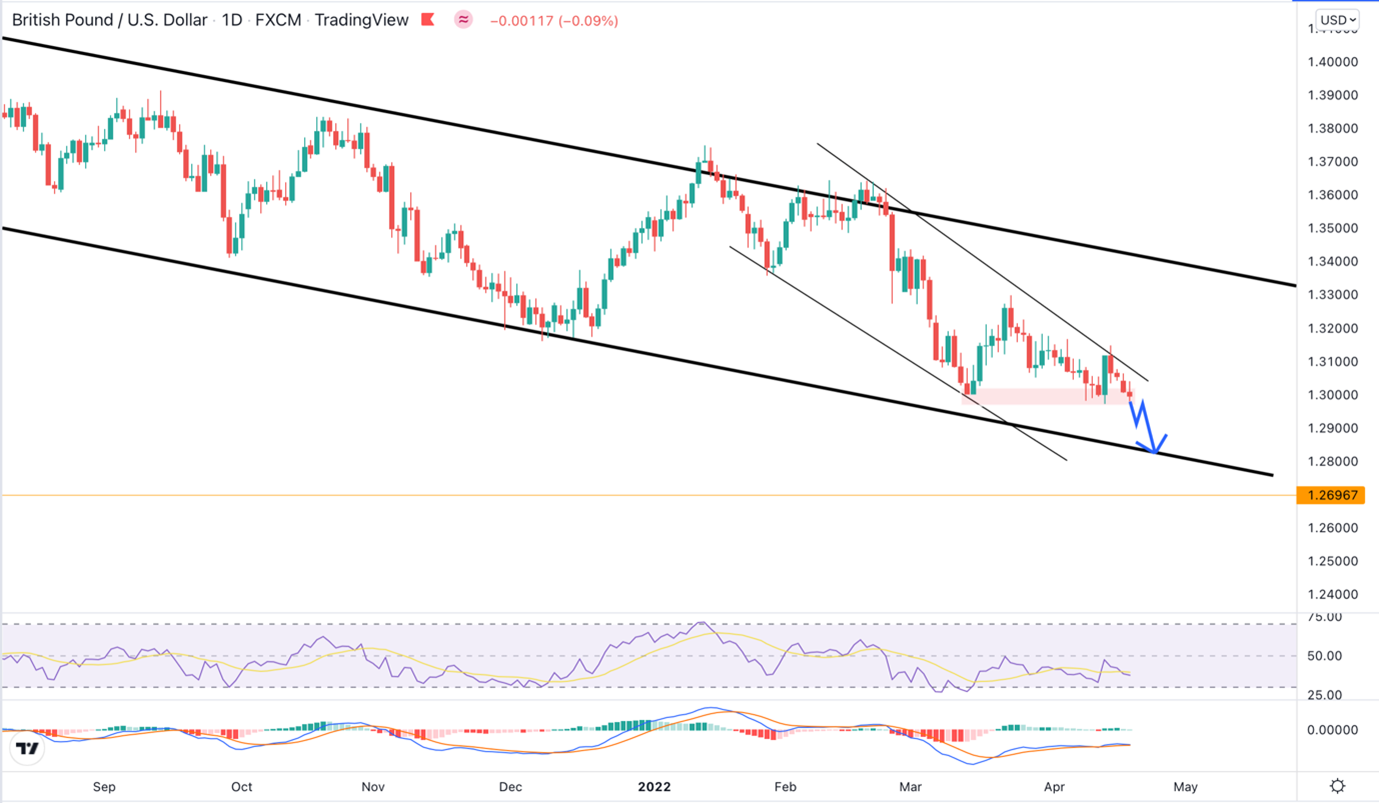USDJPY Renews Rally Along with Treasury Sell-off, Major Pullback is in Sight

Monetary policy divergence between the Fed and other large central banks remains key driver of unabated greenback strengthening. USDJPY looks set to test 1.30 soon while EURUSD is moving towards multi-year lows. Sellers of the Euro are expected to increase pressure in the run-up to the second round of presidential elections in France. The situation in Ukraine heats up which boosts safe-haven demand for the dollar.
Last week it became clear that the ECB is handing over the euro to bears - despite accelerating EU inflation, ECB outlook for policy changes remained largely unchanged and there were even hints that the Central Bank may retreat on its tightening path. As a result, US real yield outlook relative to the EU has become even more favorable. Today, the markets continued to price in dovish signals from the ECB which led to a retest of the level of 1.0750. GBPUSD fell below 1.30 albeit without a follow-through as the price clings on the "round" level awaiting fresh bearish signals from the Bank of England. USDJPY renewed peak thanks to the rally in US bond yields, 10-year Treasuries rose to 2.90%. Serious buying pressure is expected at 3% yield on 10Y bonds which means USDJPY pullback should likely be expected near 130 level.
The euro is also weighed down by uncertainty associated with the French elections. Despite Macron's relatively safe lead over Le Pen, investor appetite for the European currency will likely remain subdued until the election outcome is known.
Tensions in Ukraine also prevent buyers to bet on early Euro reversal. The new round of escalation will likely force EU to increase sanctions pressure, however recent price action shows that the Euro bears losses with each new round of trade restrictions against Russia.
In the short term, the target for EURUSD remains a test of the 1.0650-1.07 range, from where a rebound can be expected:

The pound sterling awaits March retail sales release and BoE Bailey’s speech on Wednesday and Thursday to determine direction. Investors are on the lookout for more bearish signals, especially if retail sales point to faltering consumer demand due to persistent inflation spike. In such circumstances, it will be much more difficult for BoE to stick to the hawkish path. Given the GBPUSD consolidation near 1.30 with minimal effort to move up, the move to 1.29 seems to be a matter of time:

Disclaimer: The material provided is for information purposes only and should not be considered as investment advice. The views, information, or opinions expressed in the text belong solely to the author, and not to the author’s employer, organization, committee or other group or individual or company.
Past performance is not indicative of future results.
High Risk Warning: CFDs are complex instruments and come with a high risk of losing money rapidly due to leverage. 73% and 72% of retail investor accounts lose money when trading CFDs with Tickmill UK Ltd and Tickmill Europe Ltd respectively. You should consider whether you understand how CFDs work and whether you can afford to take the high risk of losing your money.
Futures and Options: Trading futures and options on margin carries a high degree of risk and may result in losses exceeding your initial investment. These products are not suitable for all investors. Ensure you fully understand the risks and take appropriate care to manage your risk.